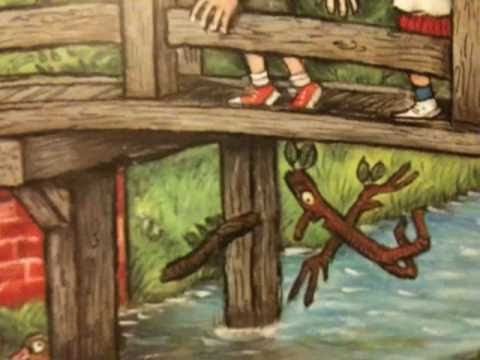I had a bad day
Treating myself to a little spiral
I am aware it’s Friday.
This newsletter is a day late, which probably only really matters to me.
But it really matters to me.
Because routine is my bread and butter.
I started writing about something else yesterday, and that went in the drafts after the entire day turned into an absolute shitshow.
This week’s issue could be seen as a sequel to last year’s An ode to superglue, in which I talked about how I kept sticking my car key back together, simply praying to the spirits that it would never snap in the ignition.
Day from hell
Yesterday, I took Potter to the vet for a check-up so we could get the prescription for his arthritis medication online. On the way there, I was nearly pushed into the hard shoulder on the A19 by a Dutch wagon which couldn’t let me join the road as ANOTHER Dutch wagon was in the right-hand lane. Fortunately, no one was driving too close behind me, but I kept imagining: what if someone had been up my arse? A rear-end collision could have killed Potter. I couldn’t get out of this spiralling thought pattern for ages.
On the drive home, I was frustrated by the huge expense of the vet and was desperate to immediately file a pet insurance claim in an attempt to get a little bit of cash back. But before I could pull into the street, my engine light flickered. It flickered again. Then, it stayed on. Mocking me.
I got home, Craig rang the garage, and they said they’d take my car immediately if we went right now. So, off we went. Upon arriving at the garage, an email appeared on my phone — a long-term retainer client served their two-month notice, which is well within their right to do, but a kick in the teeth when you have an old battered car and an even older battered dog.
I handed my two car keys to the mechanic, and we came home. Two car keys because, yes, I still have the electric part of the broken car key, which unlocks the car, and then a physical key for the ignition. This is despite my car key breaking in April last year.
I would argue the car key situation is an allegory for my life
There are some things I can do, like second nature. Writing this newsletter. Cooking meals. Running. There are others that I begrudge, but I do anyway, like chasing invoices and laundry. But there are other tasks that seem like mountains I simply cannot overcome. Printing, signing, and delivering the pet insurance form are certainly some of those things, and getting a single working car key is another.
It’s safe to say, I don’t feel too good right now.
We’re also a few days into potty training our toddler, and while she’s doing fantastic, the additional emotional fatigue (and laundry!) is really taking its toll in a way I didn’t expect.
One of the common traits of autism that I struggle with is alexithymia, or ‘emotional blindness’. This means I often fail to recognise emotions or sensations when they are happening. Last year, I wrote about my ‘sandwich theory’, positing that adding pressure onto two slices of bread will only make the filling squeeze out of the sides. This is exactly what’s happening to someone with alexithymia when they are in a difficult situation.
Emotional blindness is common for lots of neurodivergent people for different reasons. For me, it's difficult to know how I am feeling at any one time. But that doesn't mean I don't experience the effects of these emotions; it might just be in a different way. Perhaps it's a delayed reaction, or I have a physical response to a stressful situation (an upset stomach or a migraine). All of these are valid examples of alexithymia.
A classic example is that when I was in labour with my daughter, the obstetrician stepped into the corner of the room to take a phone call. He said: “Sorry, I'm in an emergency.” I remember thinking, oh there's an emergency somewhere. I was the emergency. I wasn’t drugged, I was completely compos mentis but yet I was struggling to marry up my personal circumstances and the wider context.
It's not like I have no idea what's going on.
I know that, objectively, a bad thing is happening. I just struggle to relate those things back to myself. Maybe this is a self-preservation tactic developed by the neurodivergent brain to minimise the inherently traumatic experience of living in a neurotypical world? I’ll let the psychologists answer that one.
A few years ago, I was really into meditation and mindfulness. I still try to live mindfully, but I don’t lie on the floor imagining I’m on a beach and the waves are my breath anymore. Not because I don’t want to, but more due to the fact I have a child for whom me sitting still is the greatest offence. I guess I’ve found my own form of mindfulness in running, which requires me to not only notice my breath but also exhaust my body of excess adrenaline — a key culprit for meltdowns, I’ve noticed.
I hesitate about this newsletter becoming one all about neurodivergence. It’s like when I had a food blog back in the 2010s, and then I went vegan, and all the content became less interesting to the masses. But it was my reality back then (still is), and this is mine now. I can’t write about mental health without exploring how my neurodivergent brain behaves in certain situations, and I know many readers also identify as ND, so hopefully, it’s not completely irrelevant.
To conclude, I could sit here and give advice on what to do if you have a bad day like this, but that doesn’t mean I’m going to follow it myself. I know that the best way to recover is to drink water, eat healthy food, engage in special interests and go to bed early… but the truth is, I entered a stage of inertia last night and did none of those (except I did make pasta for tea).
Today is a new day, and while I am still tired, I recognise that a bad day, week or even month isn’t a failure on my part, but just something else to move through.
We’re just pooh sticks floating down the river; sometimes, we get stuck on a rock, and other times, we free-fall off the edge of the waterfall, but either way, we always get where we’re going.
I’ve started climbing up to the local sundial recently, as it’s a big hill and you can see all the way to the sea. Here’s a photo of me and my daughter after I pushed her up the steep bank:
I also enjoyed:
📚Lowborn: Growing Up, Getting Away and Returning to Britain’s Poorest Towns by Kerry Hudson - Astounding memoir about Hudson’s incredible life spent travelling the UK.
📽️ The Apprentice (2024) - Absolutely hilarious and bizarre film. Sebastian Stan is a master, and Jeremy Strong is incredible.
See you next week,
Ellen x
💌 About this email
I’m Ellen, and I write about mental health for the chronically online. I am a freelance copywriter, strategist and web designer, and I work from home with my husband, Craig, at Content By The Sea. We have two rescue greyhounds, Potter and Harmony, and a toddler.
I started this newsletter in March 2020 and have sent over 200(!) emails; currently, I have over 1,200 subscribers. I write about a wide variety of topics, including diet culture, my love of running, jealousy, my life falling apart, mam guilt, and this dystopian world we all live in.
💛 How you can support me
If you like reading my weekly emails, you can give me a kickback in one or more of the following ways:
📨 Share this post
📬 Subscribe for free (if you haven’t already!)
💬 Leave a comment on this newsletter








As someone going through their “first” Autistic Burnout and overwhelm with alexithymia to boot you have an amazing way with words! 🥹
Hope to one day to get here too -
“I recognise that a bad day, week or even month isn’t a failure on my part, but just something else to move through.”
Please keep being authentically you here - it doesn’t have to be labelled or all about one thing - the best things never are.
You had a lot going on that day Ellen, so it's fine to have a bad day. Yes like a lot of us you have a perfectionist streak and get stressed when plans/routines change.
Delegation of some tasks to trusted people can help as well as not overloading your schedule (we're all only human!).
A bad day for me in the last fortnight was spending 14 hours as a patient in A&E with chest pains from 7.00 pm to 9.21 am the next day (with only a waiting room chair to sit on) - thankfully I got discharged to go home (so believe me your day could have been worse!)
On a different note, have you watched the TV series Patience on Channel 4? I'm sure you'd resonate with the main character in it and enjoy it.
You're right about meditation and mindfulness only getting you so far, often it's getting into routines that help get stuff done without endless procrastinating.
Yes it's disappointing to lose a long term client.
I never understood road rage towards others as a driver though, despite people trying to explain it to me (but I gave up driving in August of last year).